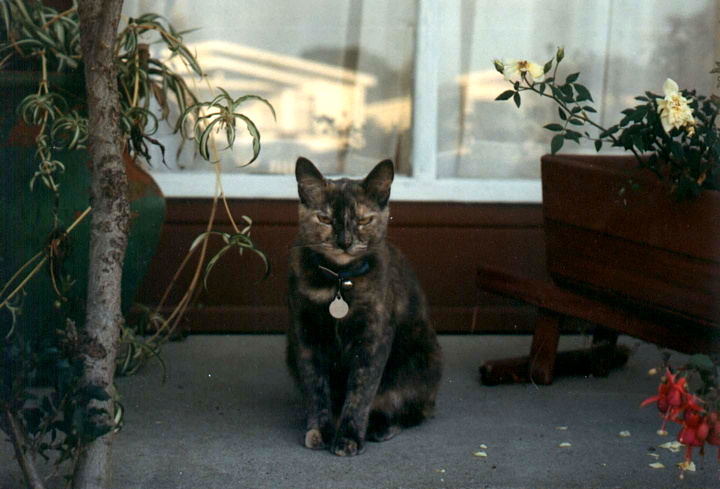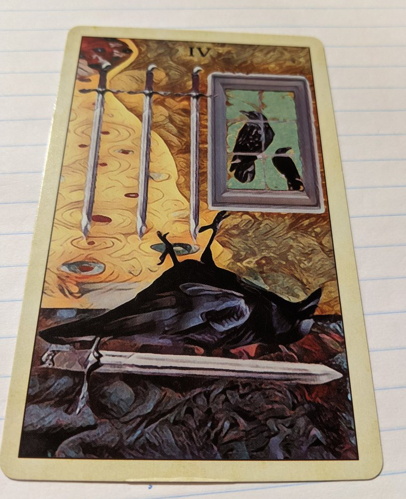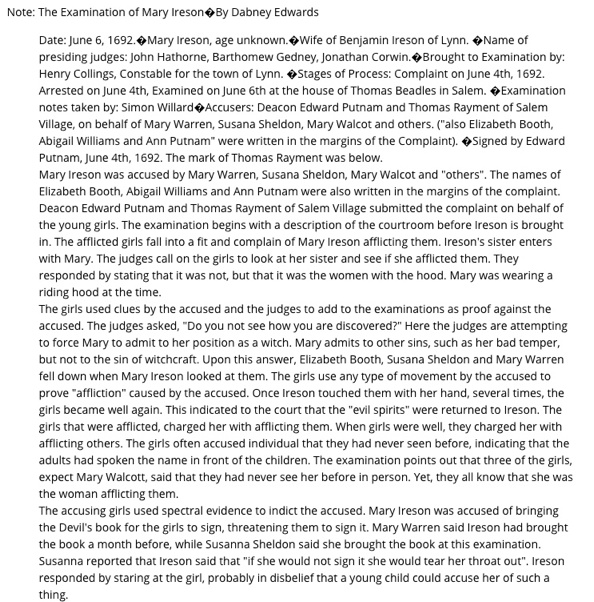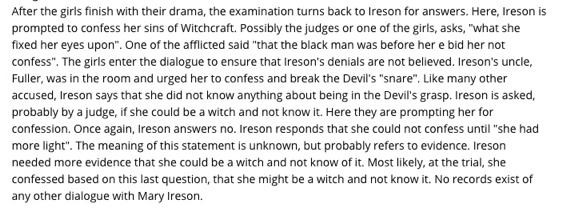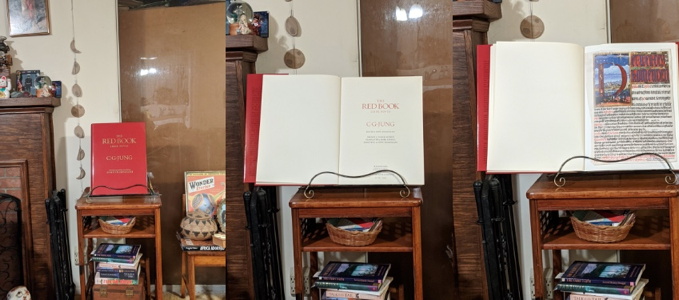Thu 2 Jan 2020
Musings
Posted by PJ under cats, geegaws, genealogy, history, jung, Mocha, musings, mysticism, nature, novels, paranormal, poetry, politics, questions and answers, reading, tarot, time, trunk stories, venus in transit, witches
No Comments
Well, this Musings post is grossly long, and maybe a bit dated, but I started throwing things into the file, then got caught up in the holidays—and God forbid anyone should be deprived of my Musings. [insert barf emoji] At least it has a lot of pictures.
*
One of my most profound mystical experiences, or contact with the numinous, was invoked by a dead cat. It changed me from near-atheist to “oh I get it now.” Thank you, Mocha. The Mocha Hierophany.
Mocha, an old soul from the 80s:
*
New Year’s Day sunset: Even enhancing the color on this doesn’t come close to the intensity of the light. Nothing ever beats Nature. Thank you, Nature.
The same sky from my friend who lives a few miles from here. This one captures the immensity of the sky better than mine did, how the clouds seemed to go on forever.
*
Here’s a question for you: is poetry a purely mammalian response to the world? Is magic? Would intelligent and highly advanced reptiles, for instance, have that sense of wonder and awe and poetry? I don’t want to be Mammalian-Centric.
*
I always think of the four of swords as the “rumors of my death have been greatly exaggerated” card. (Yes, dad jokes help me remember the meanings.)
*
A few days before the new year (December 30th) I found out that I share blood with one of the accused Salem witches (Mary Leach Ireson). We’re descended from the same ancestor (Richard Leech) through the brother (Lawrence Leech) of my direct ancestor (Thomas Leech). Maybe that’s why I’ve always been obsessed with these trials. I particularly like the “maybe you were a witch but didn’t know it” line of questioning. Apparently, the “maybe I’m a witch but didn’t know it” defense worked because she wasn’t executed and lived until 1711.
As I’ve said before, women rarely appear in the historical record unless they’ve suffered some trauma.
*
I have so much work to do and a limited amount of time. But time is not my enemy. If I focus on what needs to be done, not allowing myself to be distracted, I will do what I need to do. The only reason I say it isn’t against me is because I will do what I can do. If time runs out, then it does. It will eventually anyway so why so sweat it?
*
You know that weird stuff you have to clear from your parents or grandparents’ homes when they pass? When you reach a certain age you can’t be arsed about good taste. Sometimes you just want stuff that makes you giggle or because you know it will chagrin some of the people who inherit it.
*
I finally got my Red Book set up so that people can actually see it instead of being hidden away in a room they can’t go in.
*
Last month I pulled my novel Venus In Transit out of the trunk. I started working on it in 1999. It was inspired by Patrick Harpur’s Daimonic Reality and later given shape and spin by George P. Hansen’s The Trickster and the Paranormal. Plus all those thousands and thousands of paranormal shows I’ve watched over the years and many another paranormal book. I had the novel in a fairly polished state and was getting ready to start marketing it when my mother had a stroke and my world went all to hell for several years. Then there was the very long and painful writer’s block afterwards.
Things started to loosen up for me artistically after watching season one of Hellier last year—and that’s when I had my Hellier related synchronicity storm. Which let me know I was on the right track creatively. I finished one novel this summer and started working on another. Then Hellier Season 2 came along. It fed my head yet again, and there was something about the discussion in that series of pushing through frustration that reminded me of the artistic process.
Whenever an artist, or at least any artist I know, reaches a point of frustration it’s often the sign of imminent breakthrough to a new way of doing things. Pushing through that frustration is a vital part of the process. So I got out that old paranormal novel with an idea to see if it really was ready to market and I fell into a hole with it for about a week. That edit is done, but when I got to the part in the story where my investigator discovers strange, small, three-toed footprints with dermal ridges, I thought, “No one will ever believe I didn’t get this from Hellier.” But those are the breaks. Hellier2 did encourage me to pull it back out of the trunk and that’s got to be a good thing.
*
Hellier is beautifully shot and edited. I remember when the granddaddy of paranormal shows, Ghost Hunters, premiered. They used that cinema vérité style which gave a feel of credibility (and because it was cheap to produce), but imitation is not the sincerest form of flattery. Most of what’s come since has been crap.
*
My life is a lot better since I’ve given up trying to find ultimate answers. I’m more content trying to find ultimate questions.
*
Well, I got within 100 pages of finishing Quicksilver by Neal Stephenson but my medieval porn book arrived so…sorry Neal.
*
Cats exist simultaneously in this time/space and in hyperspace which is why they always seem to take up a vastly greater amount of space than their physical bodies would imply.
*
I’ve been to both Disneyland and the “Disneyland of Cemeteries”—Forest Lawn—and I would choose to spend my eternity in neither of them. (Talk about terrifying!)
*
Lt. Col. Vindman during the impeachment hearings reading that paragraph to his dad and talking about it? “Don’t worry. This is America. We do what’s right here.” We have to justify his faith in this country. It’s been what was true in the past and we can’t let it fall away. DO THE RIGHT THING, AMERICA. And Rep. Raja Krishnamoorthi talking to Vindman about the pride of being an immigrant and being an American? Yep, that’s the essence of what this country it’s always been.
